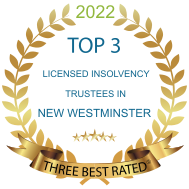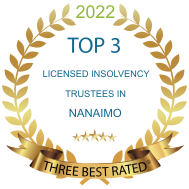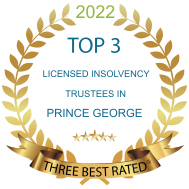Good vs. bad debt: Are you borrowing money wisely?
27 Nov 2019

Bad debt can lead to unescapable interest costs, damaged credit, and failed financial goals. But how can you tell which type of debt is good or bad? The answer lies in how you use and manage it.
Our relationship with money has changed over the past 70 years. Our parents lived a frugal lifestyle following a simple philosophy–one should never borrow money to buy things except a mortgage for a home. They avoided any other type of debt at all costs.
Today, the average Canadian owes $1.81 for every $1.00 of disposable income. How’d we go from avoiding buying on credit to preferring it? Whether it be for necessity or convenience, there are several reasons why Canadians have become more likely to borrow money.
- Increased cost of living. With inflation reducing the affordability of everyday items, it can be hard to maintain a balanced budget. Many rely on credit to buy things they can’t afford, assuming they’ll pay it back after their next paycheque.
- Reduced savings. With little in the bank, many rely on credit to cover unexpected expenses or large purchases. Our recent survey found that 27% of Canadians couldn’t afford any additional increase in expenses, with most turning to debt to cover new or unexpected costs.
- A higher tolerance for debt. Many Canadians use payday loans, cash advances, or lines of credit to keep up with their monthly expenses. These loans have some of the highest interest rates in the country, often leading borrowers into a cycle of debt.
- Offers and deals. Every day, we get bombarded with new deals, offers, and promotions that entice us to use credit. Whether it’s an offer to buy now, pay later without interest, or gain cashback or rewards on credit card purchases, credit-related offers are everywhere we turn.
What is ‘bad debt’?
Bad debt is money you borrow that won’t be repaid easily and used to make purchases that lose value—for example, using a high-interest personal loan to buy a vacation. Bad debt can come in the form of credit card debt, and/or high-interest loans like payday loans. If you take on bad debt and can’t pay your balances in full each month, interest payments will prolong your debt, damage your credit score, and worsen your financial well-being.
It’s easy to think that all debt is bad, but there is such a thing as good debt. Certain types of debt can be advantageous for improving your credit score and achieving financial goals. A big part of borrowing money wisely is figuring out if what you’re borrowing for is a good investment and ensuring you can repay it. Borrowing money for items that increase their value over time is normally considered good debt. A mortgage to buy a home or a reasonable–sized student loan for your education would be considered a wise borrowing decision.
How to avoid bad debt
It’s okay to use credit if you have the funds available or a plan to pay your balance in full at the end of each month. If you can’t pay your monthly balance in full and only pay the minimum payment, bad financial habits will form, and you’ll pay more in interest. If you rely on borrowing money, the following tips can help ensure you’re borrowing wisely:
- Try to limit your borrowing as much as possible. Available credit doesn’t increase your income; interest costs will decrease your monthly cash flow in the future.
- Refer to your budget. Before you purchase with credit, ensure your monthly budget can absorb the payment next month.
- Think ahead. When making large purchases such as a home or vehicle, ensure you’re budgeting for associated costs such as heat, power, insurance, repairs, and upkeep, not just the monthly loan payment.
- Explore your options. Shop around for the best interest rate on loans and be aware of how much interest you will pay over the life of the loan. Try to commit to as short a term as possible to limit the effects of compounded interest charges.
- Do a need vs. want assessment. Before borrowing money, ask yourself whether you need or simply want the item.
- Borrow what you can afford. If you’re pre-approved for a mortgage or car loan, remember this is the maximum amount you can borrow, not the amount you must borrow.
Credit offers are available everywhere you turn, and deciding whether to borrow is up to you. You’ll most likely need to borrow money at some point. When you do, remember to take the time to research the options available to you. Borrowing wisely means figuring out the loan or line of credit that best fits your needs and your lifestyle.
Signs of bad debt
For many, debt doesn’t happen overnight. Debt often starts small and slowly spirals beyond control over time, making it hard to realize that your debt is a problem before it’s unmanageable. If one or more of these debt warning signs applies to you, you might have a debt problem or are heading for one:
- You only make the minimum payment on your credit card.
- Your payments are going towards interest, not the principal loan amount.
- You rely on credit cards or payday loans to make ends meet.
- You receive collection calls for missed payments.
- You feel stressed when thinking about your financial situation.
Learn more about what to do when you spot a debt warning sign.
If you find yourself in a situation where you’re struggling to pay back your debt, we’re here to help. At Grant Thornton, we offer judgment-free, 30-minute consultations to help you find the best path to debt freedom. Call today at 1-844-4GT-DEBT and start your path to a brighter financial future!



